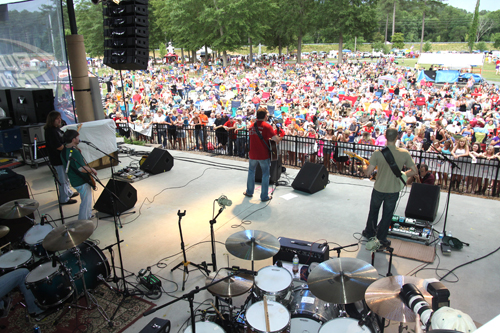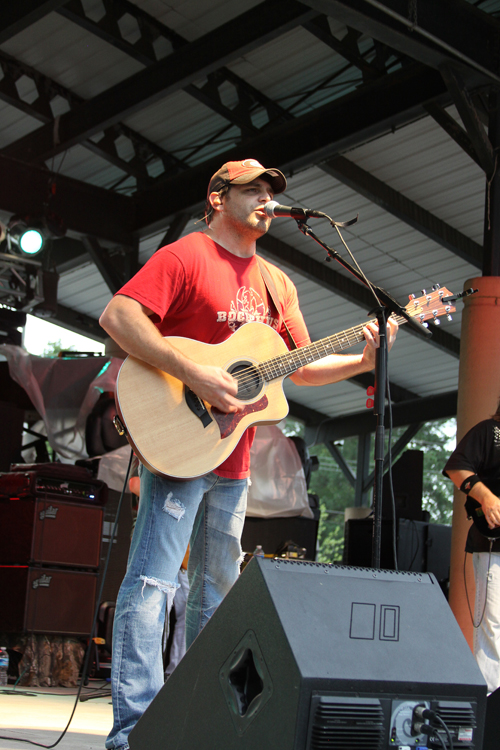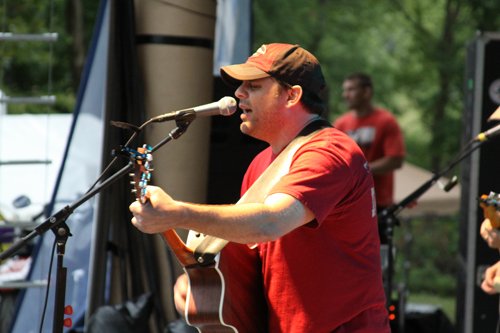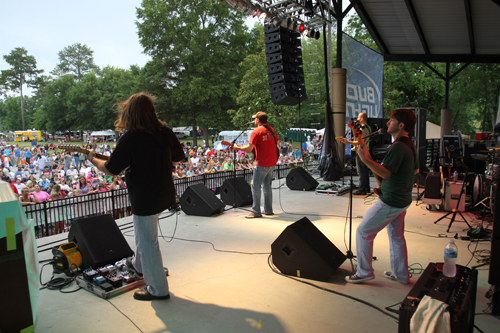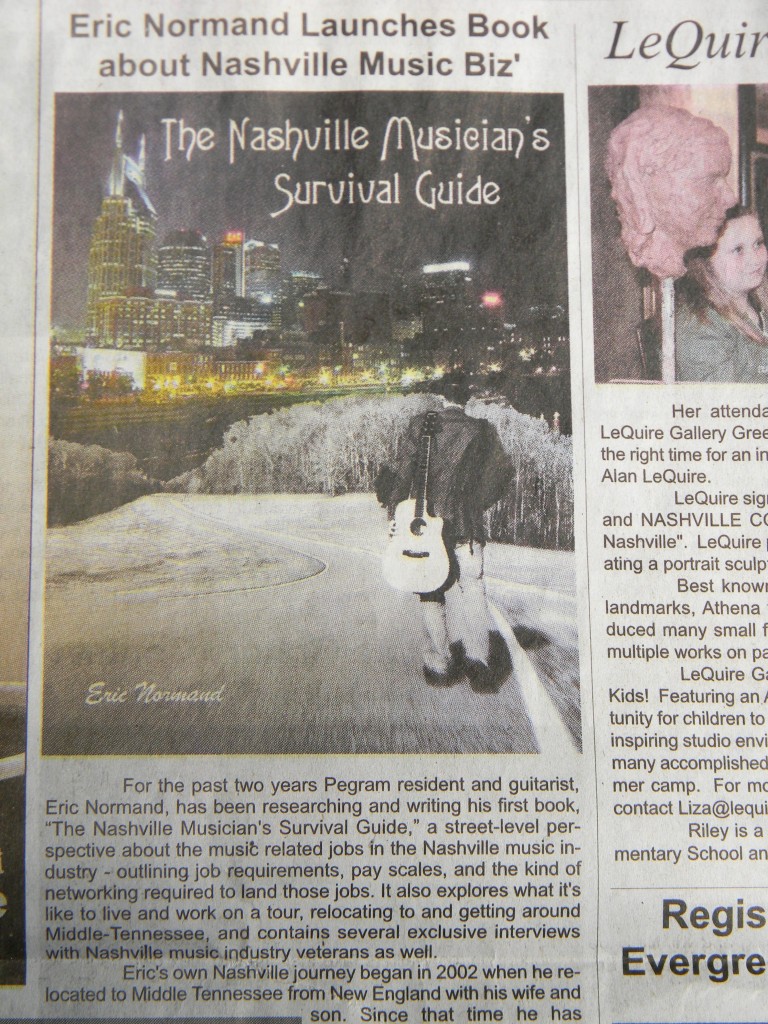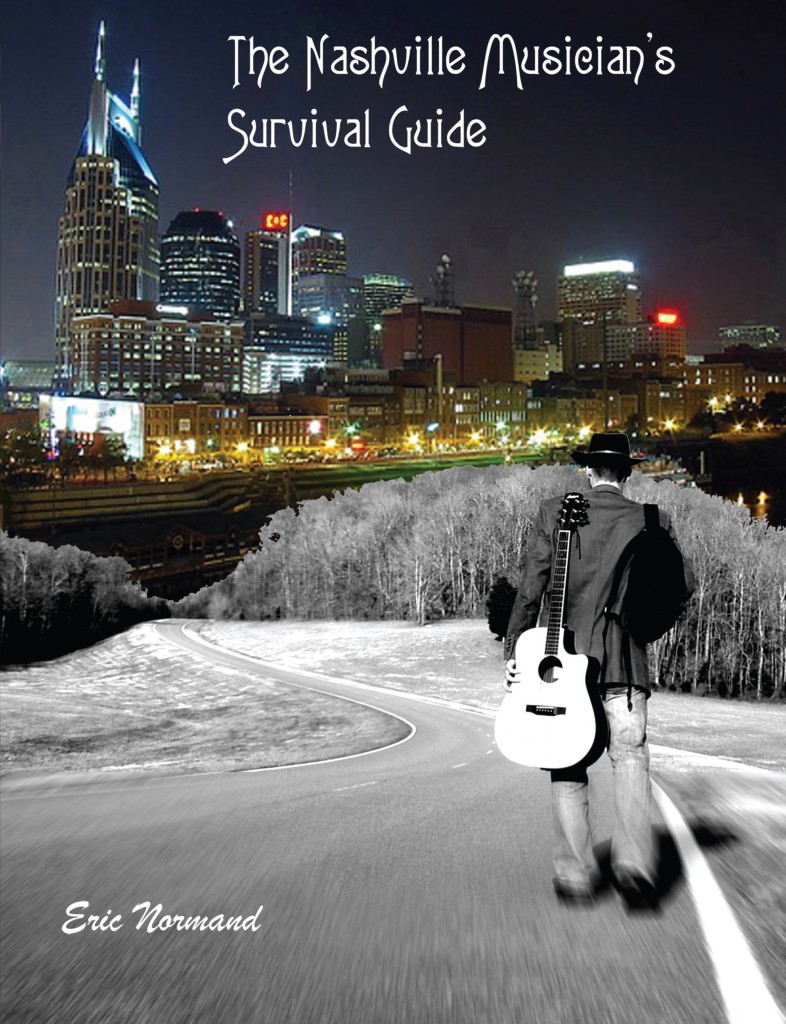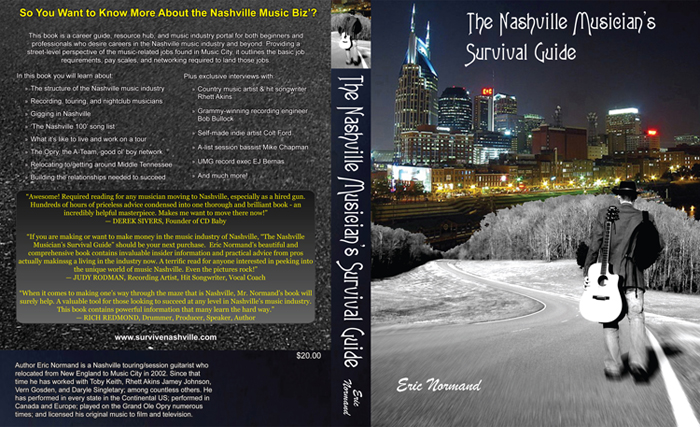music business
Rhett Akins Plays Rome River Jam 2011
Even though summer hadn’t yet officially started, it sure felt like it when we pulled into Ridge Ferry Park in Rome, Georgia last Saturday to play at the fifth annual ‘Rome River Jam.’ It was just before noon and the temperature was already approaching 95°, the air thick with humidity. Yes, it was “fixin’ to be a hot one” as we would say in these parts, and that would be okay for this multiband festival.
We parked our bus in the fenced-off backstage area next to headliner, Darius Rucker‘s three buses and I stepped out to meet the stage manager and check out the grounds. With five acts on this bill there would be no sound check for us on this day, just a line check and monitor check immediately prior to our set – what is commonly referred to in the touring industry as “throw and go.” Still, there was work to be done so I got busy.
Under my direction, the stagehands loaded in our gear to one of the “sound wings” adjacent to the main stage, and our merch to the merchandise tent. I went on a mission to commandeer our “bus stock,” which, upon its arrival a short while later, was quickly devoured by our band and crew for lunch. After icing down some beverages on the bus for later, I had a runner take us over to the hotel for showers and a brief rest before our late afternoon performance.
Typically, I use this down time to check and respond to e-mails, return phone calls, and maybe squeeze in a quick nap before showering and returning to the venue. On this day, however, I did something I rarely do in hotel rooms on the road – I watched TV. Upon turning on the TV, the reality show “Pawn Stars” happened to be airing, so I gave it a chance. I would probably blow right by a show like this if scrolling through the channels at home, but for some reason, I found myself drawn in. The show was actually quite interesting, and at points, funny as hell.
A little while later we were all back at the concert site, and the first artist, Sam Hunt, was performing his set as the Park began to fill up. We began to hear about some inclement weather possibly moving in, the worst of it predicted to hit around 5:00 PM, which of course happened to be right smack in the middle of the set change prior to our performance. The local band playing just prior to our set, “Kneckdown” (which incidentally featured the events promoter, Jay Schell, on lead vocals), finished at about 4:45 and we began our set up. About 15 minutes later, almost as if on cue, the weather began to turn nasty. The wind picked up, the rain began to come down, and a portion of the crowd that had already grown to around 2500 ran for cover.
Fortunately, our stage had a pretty solid roof that extended past the edges of the stage, and this kept us and the gear dry, but it was still a frightening storm. The storm was packing wind gusts of up to 50 mph and was also accompanied by intense lightning, which was visible from the stage. I learned later that a tree fell on the adjacent property, seriously injuring two people who had to be rushed to the hospital. Resisting pressure from the stage manager and production company owner to start our set, we waited until the lightning had completely stopped to kick it off.
A few stressful minutes later the storm had passed, and the air seemed quite a bit cooler as we were now on the backside of a front that 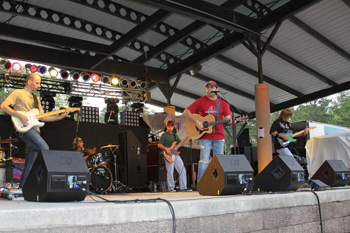 had moved through. After a brief introduction from the local DJ we were off and running. Despite the rocky changeover, we were off to a good start, and the crowd quickly piled back into the main area in front of the stage. Rhett was in a good mood, the band was playing great, and the fans got right into it. By the peak of our set the crowd had swelled to around 4000, many whom were singing along with some of Rhett’s latest songwriting successes, one of which was “Honeybee,” Blake Shelton‘s recent number one smash. We ended our 70 minute set with the anthem “Kiss My Country Ass,” and the crowd roared with approval.
had moved through. After a brief introduction from the local DJ we were off and running. Despite the rocky changeover, we were off to a good start, and the crowd quickly piled back into the main area in front of the stage. Rhett was in a good mood, the band was playing great, and the fans got right into it. By the peak of our set the crowd had swelled to around 4000, many whom were singing along with some of Rhett’s latest songwriting successes, one of which was “Honeybee,” Blake Shelton‘s recent number one smash. We ended our 70 minute set with the anthem “Kiss My Country Ass,” and the crowd roared with approval.
One of the cool things about playing festivals is the interaction between musicians and crew members from different tours. On this day I met Andrew, the merchandise person for country artist, David Nail; and Patrick, the fiddle player for Darius Rucker. Scott, our other guitarist, got to meet Darius and have a photo taken with him. Another cool thing about playing festivals is getting to hear these other artists and bands, and on this day, all the bands played great! It was a great concert, fun was had by all, and we got real lucky that the nasty storm didn’t end the day early for everybody. See you next time Rome!
I would like to thank local photographer, Andy Butler, for donating the use of these pictures. – Butler Photo/Cartersville Ga
Coming Gigs and Events
As some of you might know, there’s a lot going on in Nashville this week. It’s that time of year again where 250,000 country music fans converge on the city for “CMA Music Fest Week” (formally known as Fanfare). Tourists, country music fans, and curiosity seekers from all over the globe will fill the streets, shops, hotels, restaurants, nightclubs and concert halls, and while this can make getting around a little sticky for the locals, it is truly an exciting week for Music City, not to mention good for the local economy. This year, I am fortunate to play my own part in these festivities.
Thursday, June 9 from 11 AM – 2 PM I will be doing a book signing at the Charlie Daniels Museum on Second Avenue in downtown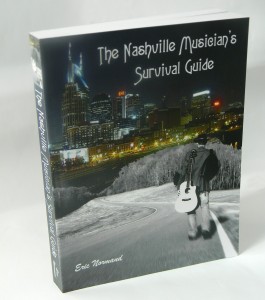 Nashville (between the Hard Rock Café and the Wildhorse Saloon.) This unique museum/gift shop began selling my book last week at which time I was fortunate to meet the museum’s owner, Bud Messer, who requested I come back and do and in-store signing during Fanfare. Bud is a great guy and I am honored to receive this invitation from such a prestigious institution, not to mention the fact that they are now selling my book. (The Ernest Tubb Record Shop on Broadway is also now selling my book.)
Nashville (between the Hard Rock Café and the Wildhorse Saloon.) This unique museum/gift shop began selling my book last week at which time I was fortunate to meet the museum’s owner, Bud Messer, who requested I come back and do and in-store signing during Fanfare. Bud is a great guy and I am honored to receive this invitation from such a prestigious institution, not to mention the fact that they are now selling my book. (The Ernest Tubb Record Shop on Broadway is also now selling my book.)
This Saturday, June 11 my band will be performing at The Fillin’ Station in Kingston Springs. The fun starts at 7 PM, and if the weather is good (which it looks like it will be), the outdoor patio will be open. This week the band will consist of me on vocals and guitar, Nick “Shaggy Bag” Forchione on drums, Tom Good on bass, and special guest Patrick Weikenand (formerly of the band “War”) on harp and beer slinging. This club is a one-of-a-kind experience, so if you’ve never been, you owe it to yourself to check it out. (no cover.)
Monday, June 13 I will be giving my first talk on the book when I host “The Nashville Musician’s Survival Guide Workshop” at Corky’s Ribs & BBQ, 100 Franklin Road, Brentwood, TN 37027. This luncheon will be sponsored by “Indie Connect” and held between 11:30 AM and 1:30 PM. Cost $10.00. This presentation will be somewhat informal and there will be a lot of questions and answers, networking and group interaction.
Other than that, it’s been hot as hell in middle Tennessee for the past month, and we’ve had over 10 straight days of 90° plus heat with no end in sight. Stay on the lookout for heat and poor air-quality advisories.
So that’s it for now, if you’re around, please stop in to one of my events or gigs and say hi.
Nashville News May 25, 2010: Indie Connect’s “New to Nashville,” and Derek St. Holmes at The Red Rooster
This past week in Nashville brought some new experiences to the table for me, and today I would like to share a few quick thoughts on these events.
Indie Connect and the “New to Nashville” Monthly Meeting
There is a Nashville-based music industry organization called “Indie Connect,” and once a month they have a “New to Nashville” meeting at The Red Rooster. I first discovered this organization last year when I stumbled across their website, a fairly elaborate site with all sorts of interesting and useful articles. Upon signing up for their newsletter I began to receive notifications about different meetings and workshops held monthly, themes ranging from “New to Nashville” to Songwriting, and “Singing in the Studio ” to PR Campaigns. While I’m certainly not new to Nashville, I have wanted to check out these meetings for a while as I have been asked to be a guest speaker at one of their luncheons next month.
The meeting, hosted by longtime Nashville songwriter Marc-Allen Barnette, was very laid back and began with each person in attendance sharing a little bit about their background, as well as their Nashville goals. After the introductions Marc began sharing his thoughts and views about being a songwriter in Nashville as well as some other perspectives about the scene. Several valid points were made regarding songwriter nights.
- Most of the accompaniment at the songwriter nights is done with acoustic guitar, so if you are a songwriter and plan on participating, it is to your benefit to be able to play acoustic guitar (or bring someone else who can).
- Most songwriters in Nashville write with co-writers, as cowriting expands the number of contacts who are connected to their songs.
- Support the songwriting community. If you’re performing at a writers round, stick around after your song is done to show support for the other writers.
After hearing some of us Marc’s ideas and advice, a back-and-forth conversation ensued with everybody participating and offering their thoughts and ideas. Also in attendance was Vinny Ribas, the founder of Indie Connect, and he also interjected his thoughts on different subjects. All in all the meeting was up tempo and informative and certainly worth checking out if you are “New to Nashville.”
Derek St. Holmes at The Red Rooster
Have you ever listened to the music of Ted Nugent? I have. I used to love hearing his song “Stranglehold” as it blared out of FM radios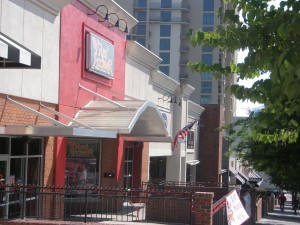 during my teenage years, back in the 80s. As distinctive as the guitar parts are to that song, the vocals are almost even more mesmerizing – a high and emotive rock and roll lyric belted out with power and conviction, by a distinctive and colorful voice. So maybe that’s why during our “New to Nashville” meeting on the outside patio of The Red Rooster last week it became difficult to focus on the discussion after the band began playing. Little did I know at that moment that the voice in the band that was booming out onto the patio was none other than that of Ted’s original lead singer, Derek St. Holmes. As I would later learn after the meeting let out, Derek lives in Nashville, and when he’s not on the road with Nugent, he can be found performing on Tuesday nights from 7 to 9 at The Red Rooster on Demonbreun Street.
during my teenage years, back in the 80s. As distinctive as the guitar parts are to that song, the vocals are almost even more mesmerizing – a high and emotive rock and roll lyric belted out with power and conviction, by a distinctive and colorful voice. So maybe that’s why during our “New to Nashville” meeting on the outside patio of The Red Rooster last week it became difficult to focus on the discussion after the band began playing. Little did I know at that moment that the voice in the band that was booming out onto the patio was none other than that of Ted’s original lead singer, Derek St. Holmes. As I would later learn after the meeting let out, Derek lives in Nashville, and when he’s not on the road with Nugent, he can be found performing on Tuesday nights from 7 to 9 at The Red Rooster on Demonbreun Street.
Even though I couldn’t see the band from where we were sitting on the club’s outside patio, I knew they were quite good from the moment they began playing. By the time they performed a blistering version of Jimi Hendrix’s “Red House” midway through the set it was obvious that this was not your typical Nashville bar-band. As I was firmly committed to the conversations at hand, I did my best to not be sidetracked by the music. But by the time they played the last song of their first set, which just happened to be the anthem “Stranglehold,” it was almost impossible to not become completely drawn in. This music is rock ‘n roll at its finest, and their performance was fit for a stadium crowd, let alone the 30 or 40 Nashvillians that had gathered on this cool spring night!
I left during their break as I already had commitments elsewhere, but as this is a regular Tuesday outing for this rock ‘n roll legend and his band, I’ll be back for sure.
After Thought:
Later on the next day, another significance of the Derek St. Holmes show occurred to me. The folks at this “New to Nashville” meeting were just that, new to Nashville. And the one thing most Nashville newcomers are lacking is contacts. The only reason I knew Derek St. Holmes was the performer inside was because I asked, mostly out of curiosity because it was so good. There were obviously some heavy hitters in his band too, all whom are likely connected to many other important avenues within the Nashville music industry and beyond. I recognized some players that work for national acts in the audience as well.
I guess it just goes to show that you never know who you might see or hear in a Nashville club. Next time you hear some great music by an unsuspecting bar band, stick around and listen a little, maybe chat with a few folks on the break. You never know what you might learn or hear. If you’re lucky, you might even hear “Stranglehold!”
“We’re getting out of here before the shooting starts!” – Country Music Festival Runs Amock
Our concert last Saturday in Speedwell, Tennessee was a wash, and not because of the rain. We arrived on site to this would-be country Woodstock a little after noon, and from the moment I stepped off the bus I knew something wasn’t quite right. You could just sense and feel the tension in the air.
Everything was in place for this mega-country bash – a great lineup featuring Rhett Akins, Jimmie Van Zant, Confederate Railroad,Bush Hawg, Matt Stillwell, and several others; a great concert stage and production; vendors; campsites – yes, everything was in place, except for the people. Somehow, despite considerable advertising, there were only 100 or so folks scattered across the giant field in front of the stage on this second day of the festival.
At this point we still remained optimistic as there have been plenty of shows that started out this way and still turned out okay. But our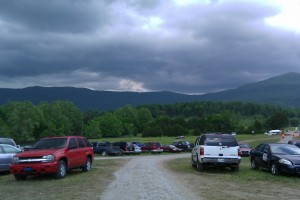 optimism would begin to fade quickly. As I began walking around looking for the promoter’s office, I started overhearing conversations that the festival was falling apart. Somebody said that the promoter was running out of money and that “the beer truck and the Porta Potty Company were pulling out.” Obviously, this wasn’t very encouraging news.
optimism would begin to fade quickly. As I began walking around looking for the promoter’s office, I started overhearing conversations that the festival was falling apart. Somebody said that the promoter was running out of money and that “the beer truck and the Porta Potty Company were pulling out.” Obviously, this wasn’t very encouraging news.
A few minutes later I found the promoter’s office and was greeted by the contact with whom I had advanced the show. When I asked him how it was going his reply was honest, but grim.
“Not good at all. The promoter is out of money and I’m not sure how this will all go down.”
“I suppose this means we won’t be able to get our bus stock?” I replied, half jokingly.
He responded, “That was one of the first red flags. When I told him I needed $300 to get bus stock for the different bands, he said he didn’t have it.”
“Ookaaay. I guess I should talk to him so we can figure out what we’re doing. ” I replied, realizing that if a three day festival was broke at noon on Saturday, and already losing their beer truck, that things could get ugly.
I walked into the next room to speak to the promoter, and saw that he was in a meeting with a couple of other event coordinators and three or four state police. Realizing this was not a good moment to approach him, I returned to the bus to tell Rhett and the gang of the situation. No sooner had I opened the bus door when a tall fellow wearing an orange “security shirt,” and sporting some really bad teeth, poked his head in and yelled into the front lounge where Rhett was sitting.
“Is that him, is that Rhett Atkins?” he yelled, incorrectly pronouncing Rhett’s last name.
“No, I’m Ricky Nelson.” replied Rhett playfully.
The fellows reply was astonishing, “You ain’t nothin’ to me, you’re just another feather in my bird!”
Quickly ushering him out the door, I assumed he was just really stupid and socially inept, or that maybe perhaps he was a meth-head.
A few minutes later I walked back to the promoter’s office to find out about getting some food. I asked if we could get some meal tickets for catering and if we could at least get a case of water and a case of beer. I was presented with meal tickets which were good for some “ham sandwiches” and chips, and I was also presented with an interesting box of bus stock consisting of:
1 case of spring water
1 open case of Bud Light (with about 8 beers in it)
1 jar of peanut butter
1 bag of corn chips
1 open bag of potato chips (about half full)
“Thanks, I guess somebody was already hungry.” I said, amazed that we got anything at all.
A little while later I was able to finally speak to the promoter who informed me that it was our option to play, and that he might be able to pay us “some money” but that it was unlikely he would be able to pay us our entire fee, and that this would be the case for the other bands as well. I told him I would check with the boss and get back to him.
After relaying all this to Rhett, he decided that in spite of not getting paid that we might as well play anyway, as we were already there. On the way back to the promoter’s office to relay this message some other folks who were hanging around backstage told me that they had heard the Porta Potties would be pulled out by seven o’clock, at which point the police or Board of Health would shut down the festival. When I asked one of the state troopers if he had heard anything like this, his reply was “yes, I have heard those rumors too, but I can’t confirm anything. I can tell you that we are pulling out our extraction team and that the remaining officers will be stationed on the perimeter.” I wasn’t entirely sure of this significance, but it sure didn’t sound good.
As I approached the promoter’s office, I could hear a loud argument. In front of the main entrance stood a big, tall state trooper, his arms folded in front in an intimidating power stance. As I got closer I heard several event workers demanding to see the promoter about their pay, as they had apparently heard rumors that they were going to get stiffed.
“I need to see him now!” demanded an angry worker.
“I’m sorry sir, nobody can see him right now.” the trooper stated firmly. After another minute of yelling and arguing by the crowd of 8 or so, the trooper restated his position – “Nobody is going to see him right now, I’m just doing my job and trying to make sure that nobody gets hurt or shot!”
Over my seven years of working as a road manager, this was the first time I had ever heard or seen anything quite like this, and the angry mob-like scene was enough to send me scurrying back to the bus. Along the way back to the bus a drenching rain set in, and we overheard more angry workers with comments about people getting shot. This would-be country Woodstock was beginning to look more like Altamont – only without the masses. Despite Rhett’s willingness to play for free, in light of the most recent developments, we decided it was best to head on down the road. I’ll have to check, but I’m pretty sure that getting shot is not one of the requirements in our rider.
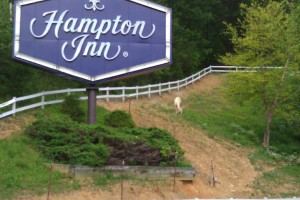 After our hasty retreat we arrived safely back to our hotel, the Hampton Inn in Carryville, TN. A little while later, Nick, our drummer, received a text from one of his friends who was playing in another band at the festival – something to the effect of “We’re getting out of here before the shooting starts!”
After our hasty retreat we arrived safely back to our hotel, the Hampton Inn in Carryville, TN. A little while later, Nick, our drummer, received a text from one of his friends who was playing in another band at the festival – something to the effect of “We’re getting out of here before the shooting starts!”
From what we could tell, there were no riots and nobody got shot at the festival. But still, the whole situation was quite unnerving and unfortunate. Obviously, several other bands besides us were leaving town without their pay, as were many vendors and event workers. The festival goers who were in attendance were ultimately shortchanged. And the promoter obviously lost his shirt, not to mention credibility.
On a brighter note, we did have a great time hanging out at the Hampton Inn and the guys did enjoy a fabulous dinner at the local Waffle House!
Apopka, Florida here we come!
The Hampton Inn in Caryville, TN, was the most unique Hampton Inn we have ever visited – the walls of the lobby, hallways, and stairwells covered with hundreds of old photographs, newspaper clippings, and folk art and providing a retrospective of the old South. It even had an adjacent llama farm. I’m going to try to write a blog over the next couple of days as there’s not enough space to do it justice here.
Music Careers in Nashville – To Be or Not to Be
So far, the feedback I have received on my book has been very positive, and I’m thrilled about that. Several people who purchased the book have e-mailed me and share their thoughts; I’ve even had some European interest. However, a Craigslist response last week to one of my recent blogs brought up one issue that I must address.
The response was to my last blog “The Benefits of Having, and Being a Mentor” and, while it completely missed my point about mentoring, the writer stated views that “the music business is the biggest waste of human activity” and something else to the effect of ‘why should young people have to spend years playing in bars to get good or make connections?’ This person was obviously taking a shot at me and my book, while it was clear from the rhetoric that he or she formed opinions based only on reading a couple of my blogs, without actually reading the book.
So for the record, here are some of my thoughts regarding music careers in Nashville (or anywhere for that matter).
When I started writing this book, my intention was to present a document that would help “fill in the blanks” for both newcomers to Nashville and people who are considering relocating here. I wanted it to be full of useful information that would simply help musicians’ gain perspective about what’s here and I believe the finished book does just that. But it’s definitely not a “get rich quick” angle. I don’t make any promises; I’ve done my best to simply present information about the Nashville music industry from a journalistic standpoint.
In fact, nowhere in the book do I suggest that moving to, or embarking on a music career in Nashville (or anywhere else) is a good idea. For that matter, nowhere in the book do I state that it is a bad idea. People have been selling the farm and moving to Nashville to fulfill their musical dreams for decades. The way I see it, people are going to chase their dreams no matter what I write in a book or a blog, and the last thing I’m going to do is try to talk someone out of their dreams.
Do I think that the music business is a waste of human activity? It might be for some, but those folks will never know if it is until they try. And once they have it in their head that they think they can succeed, no one is going to be able to “talk them down from the ledge.”
In the foreword to my book I write “many find out that the music industry of Nashville is not what they thought and are unable to achieve their dreams and aspirations, often resulting in a premature and hasty exit.” This is one of the first lines in the book and reading it today makes me think of something one of my professors at Berklee once told me. It was my first day of “Harmony” class way back in 1988 and the professor began the class by saying “80% of you will not survive your first year at Berklee.” He wasn’t trying to paint a picture of gloom and doom, he was simply trying to instill that what we had chosen to pursue is extremely challenging, perhaps much harder than we were prepared for, and that it was simply a statistical fact that more would fail than would succeed.
This sums up the music business perfectly. It is extremely challenging, much more difficult than you could ever prepare for, and only a small number of those who try will succeed. But this doesn’t mean that it is a waste of human activity, or that some people shouldn’t try. Like I said, it’s not my place to talk people out of their dreams. My whole angle is, if you’re going to try to build a successful career in the music business, understand how hard it is and prepare yourself for the road ahead. Arm yourself with as much knowledge as you can. Practice your instrument and become a great player and play music with others often. Learn how to enjoy playing nightclub gigs, for these are the majority of gigs most musicians will play. Read as many books, magazines, and articles about music, business, and life as you can. Talk to others in the business to gain perspective. Be a good person and contribute to the community in which you live. Work hard, bring something to the table, and don’t be afraid to put your chips down. And HAVE A BACKUP PLAN – be good at doing something else too!
The music business is an extremely competitive and difficult endeavor to succeed in, and making it work in Nashville is just as hard, if not harder than it is anywhere else. I don’t have all of the answers, I just know what worked for me and am sharing that with the hopes it might help a few others along the way.
So what are you waiting for? Buy my book today 😉
The Nashville Musician’s Survival Guide eBook, and eBooks in General
Today marks another milestone in my self-publishing book adventure, that being the arrival of “The Nashville Musician’s Survival Guide” epub and Kindle versions. I am pleased to announce that these digital formats are now available for purchase on my web-store for the low price of $9.99.
While I am still a big fan of old-fashioned paper books, and the original vision of my book was one which was printed on paper, I do see the practicality of eBooks and understand their growing popularity. In this hyper-digital world it comes as no surprise to me that printed books are starting to fall by the wayside, similarly to the demise of CDs, VCR tapes, and newspapers. But I believe there will always be a place for printed books, and therefore my book is available in both print AND electronic versions.
When the printed version of my book was complete I focused on the eBook conversion and hired a company that specializes in this work, eBook Partnership. During this process I learned a lot about the benefits and drawbacks of eBooks.
Here are a few benefits from the reader’s standpoint:
- A person can now carry hundreds of books in one small device.
- They are delivered almost instantaneously.
- They require no packing or shipping expense.
- They can show links, allowing easy access to related information and websites.
- Fonts can be resized to allow easier reading.
A few benefits from the self published author’s standpoint:
- The sale and transaction are instantaneous.
- They require no packing or shipping.
- They’re easier to sell internationally as shipping packages abroad is very expensive.
- They can be more affordable to the masses as they’re typically less expensive than printed books.
- They require essentially no storage space.
It all seems too good to be true, especially from an author’s standpoint. Well after a bit of research I learned that they are just a little too good to be true. Despite all these advantages there are some drawbacks:
- If your battery dies and you aren’t somewhere where you can plug it in your screwed.
- ebooks lack the look and feel of a traditional book – i.e. cover, pages, binding, etc.
- Unlike traditional books there is no market for used eBooks, so a reader can’t recoup some of their original investment.
- And perhaps the biggest drawback from an author’s standpoint is that eBooks lend themselves to piracy.
As we all know, when the music industry went digital, this was the start of the illegal filesharing era. Similarly to the MP3, the eBook is also far more prone to theft than its predecessor, the paper book. As the day on which I would release my own eBook drew near, I started looking into ways to protect my electronic book from piracy. I learned that there are protections that can be applied to my eBook to prevent this kind of theft but this would be expensive, and it would not be foolproof.
The truth is that even Kindle and ePub versions of books with the most advanced piracy protection (like the kind of protection applied to eBooks sold on websites like Amazon and Barnes & Noble) could be disabled by the savvy computer hacker. In other words, if somebody really wants to they can take any eBook, disable its copy protection, and pass it around the Internet as fast as a jar of moonshine will get passed around a Kentucky campfire.
Matt Horner, the eBook designer who worked on my project offered the following thoughts on the matter
“Overall, the value of DRM [Digital Rights Management/Copy Protection] is debatable and anyone who is set on copying your eBook would be able to strip the DRM from it within minutes by downloading free software from the Internet. My advice would be to price your eBook sensibly, accept that there may be some piracy, but assume that the majority of people are honest and would rather buy a reasonably priced eBook than download a pirated copy.”
So I have priced my eBook very reasonably – hence $9.99 (thousands of hours went into this project so I can’t simply offer it for free.) I hope that most musicians, the prime audience for this book, realize that this work has value, similarly to the way a songwriter or artist places value on their work.
So steal it if you must, but if you truly want to help preserve the noble endeavor that being an author or songwriter requires, follow this link and get your copy of “The Nashville Musician’s Survival Guide” today!
The people you are meeting today and the relationships you build with them are what is going to give you work five years from now
Hey everybody, I realize that I haven’t been writing very many blogs over the past couple of months and I feel like I owe y’all a few. This lack of regular blogging is mostly because of the frantic pace I kept while trying to finish the book. I’m going to do my best to put out a new blog everyday (or so) for a while.
When I first moved to Nashville, back in the summer of 2002, I was hungry for work. But gigs, especially gigs that paid well, seemed few and far between. My mentor and friend, “D” gave me tons of good advice, including networking on the town as often as I could. I followed this advice, going out on the town four or five nights a week, taking every oddball gig that was offered, sitting in whenever I could, etc. After six months of this routine, although I was making a lot of friends and connections, I still didn’t have any consistent gigs that paid any real money to speak of.
So one day I told him “Things just don’t seem to be evolving very fast for me. I’m going out on the town all the time, sitting in, making friends and networking, but the phone just isn’t ringing very much. What am I doing wrong?”
His response was quite simple, although I wouldn’t entirely comprehend the entirety of it for a couple of years.
“Patience my boy, Rome wasn’t built in a day. This town goes at its own speed. You’re doing all the right things and making a good impression around town. Everyone I’ve introduced you to likes you and you’re building a good reputation for yourself. The people you are meeting today and the relationships you build with them are what is going to give you work five years from now.”
Although that last statement was probably the most important thing he said during our conversation, the things that I heard the loudest were “This town goes at its own speed,” and “five years.” Geeesh! The Nashville music scene goes in slow motion, and I have to wait five years to get busy – NOT exactly what I wanted to hear!
But looking back at that moment, now going on 10 years into my Nashville life, those telling words make so much sense. I met a lot of people during that first hard year of Nashville – musicians, engineers, songwriters, artists, etc. – and became friends with many of them. In the years that followed, many of these friends and acquaintances would eventually call me for work. Sometimes it was a simple “one-off” gig, other times it was several gigs, sometimes it was songwriter demos.
In 2006 I did a ton of gigs on Broadway, mostly at Tootsies, but also at The Stage and a few other clubs on the strip. It was good supplemental income, good for my chops, and I met and gigged with several great players whom I became good friends with in the years that followed. These gigs all started with one phone call from a guitar player friend I had met during my first couple of months in town. He subbed out a few gigs to me, these gigs led to more gigs, and before I knew it I had all the work I could handle on the strip – All because of one relationship.
Several years later I was working more as a touring musician and no longer gigging regularly downtown. On many occasions I found myself in need of musicians for different situations, and ended up calling players I had met during those earlier years of steady gigging on Broadway. Sometimes I would need a player last minute and call someone I hadn’t even spoken to for a couple of years, someone that had obviously made a good impression at an earlier point in time.
I have learned that the town (and life for that matter) does go at its own speed, and quite often that speed is slower than we would all like. But I have also learned that there really is a lot of truth to “The people you are meeting today and the relationships you build with them are what is going to give you work five years from now.”
As some of you may know, and for those of you who don’t know, I have just released my book “The Nashville Musician’s Survival Guide.” This street-level perspective of the music-related jobs in the Nashville music industry is now available in print version, and the e-book will be available within a few days. To purchase your own copy, follow this link.
Book Release Party for “The Nashville Musician’s Survival Guide”
Come out tonight for the official book release party for “The Nashville Musician’s Survival Guide” at The Fillin’ Station in Kingston Springs, TN (7 – 11). Many of the contributors to the project will be in attendance and the first three people to ask will receive a free copy of the book. My band will be playing featuring former “G-man,” Mike Chapman on bass; Nick “Shaggy Bag” Forchione on drums; and me on vocals and guitar. There might even be a few special guests.
After 2+ long years of research and writing, I’m excited to get this book out into the world. This project has been all about paying it forward, and I believe this book will prove to be a useful tool for many musicians trying to find their way in this crazy business. This will be a very special night, and one to remember for a long time to come. So come on out for the festivities!
The Fillin’ Station
385 North Main St.
Kingston Springs, TN 37082
phone: 615-952-2100
Directions from downtown Nashville:
Take I-40 West to exit 188 (Kingston Springs)
Go right at end of exit onto SR-249 (Luyben Hills Rd.)
Go 300 yards turn left onto Kingston Springs Road
After 1.3 miles you’ll come to a stop sign – turn right onto North Main St.
The Fillin’ Station is about 400 feet on the left (the last business in a small strip mall)
“The Nashville Musician’s Survival Guide” Is Here!
That’s right everybody, the book really is finally done and now available to all who have been patiently awaiting its arrival. Orders for the print version will be processed and shipped this week, the e-book and Kindle version will be ready and available by the middle of next week, and I can’t tell you how excited I am to finally be at this point in time! Others involved in the project are getting excited too. Check out these back cover blurbs that a couple of folks offered after checking out advance copies:
“Awesome! Required reading for any musician moving to Nashville, especially as a hired gun.
Hundreds of hours of priceless advice condensed into one thorough and brilliant book
– an incredibly helpful masterpiece. Makes me want to move there now!”
— DEREK SIVERS, Founder of CD Baby
And:
“If you are making or want to make money in the music industry of Nashville, “The Nashville Musician’s Survival Guide” should be your next purchase. Eric Normand’s beautiful and comprehensive book contains invaluable insider information and practical advice from pros actually making a living in the industry now. A terrific read for anyone interested in peeking into the unique world of music Nashville. Even the pictures rock!”
— JUDY RODMAN, Vocal Coach, Producer, Hit Songwriter
As you could imagine, there was a big celebration at the Normand house when these e-mails arrived!
When I embarked on this journey two years ago last January, I had no idea I would be entering the world of book self publishing. In fact, when I initially began writing the content that became the foundation of this book, I had no intention of writing a book at all, or even the knowledge about how to go about doing this. At that point in time, I was simply trying to help a few folks on Craigslist and other message boards who wanted some info about the Nashville music biz’. The next thing I knew I was writing a book, almost by accident. The more I wrote, the more I began to understand the massive scope of this project, and the work it would entail to finish it – Internet research, extensive recorded interviews, photo taking excursions, etc. At some point along the way the book began writing itself. It was as if I was a mere conduit, the end result first being the story of the modern-day Nashville music industry magically appearing on my computer screen, and now in this wonderment of a book.
I couldn’t have done it alone either. Dozens and dozens of people have contributed their time and resources to this project and for this I am eternally thankful, their contributions have made this a far greater book than I could have produced alone. While the entirety of this project has been a massive undertaking (there were many times that I felt as if I would be writing this book for the rest of my life), this has truly been a labor of love – my way of paying forward all that I have learned in this strange place we call Music City, and I am absolutely thrilled with the end result.
So if you’ve been waiting for this book, it really is finally here. Thanks for your patience and I hope you enjoy reading “The Nashville Musicians Survival Guide!”
P.S. If you live in middle Tennessee, I would like to invite you to our official book release party at The Fillin’ Station in Kingston Springs on Saturday, April 30 from 7 to 11. Many of the contributors to the project will be in attendance on this night, there will be music performed by my band (Mike Chapman will be on bass and Fran Breen on drums), and the first three people to ask will receive a free copy of the book.
Every Day Gets Me a Little Bit Closer
It amazes me how every day is so packed full of tasks. As soon as I’m finished with breakfast, I excitedly walk up to my office, sit down at my computer, and dig in to this book project that has all but consumed my life for the past two years. I’m about two days away from sending the finished PDF off to the printer, yet it still seems like it’s never actually going to happen.
Yesterday’s big task was all about finishing the cover design. I had some major help with this all-so crucial and final last step. This help came in the form of the world’s greatest graphic designer (AKA my wife, Kelly). The cover came out great. The front cover art was completed last year, but we still had to design the spine, and the back cover. According to “Dan Poynter’s Self-Publishing Manual,” the back cover is the most important element of your books exterior. For it is the back cover text that will ultimately cause a potential customer to look inside, and hopefully purchase the book, or, put it back on the shelf and pass on it. And of course, it must have a look and feel that makes people want to read it when they pick it up.
We looked at several other books for ideas as a starting point for our cover design. One of them was “I, Alex Cross” by James Patterson, a very cool looking, and eye-catching book exterior. After hours and hours off trial and error, experimenting in Photoshop, etc., we arrived at a finished design that does justice to this manuscript. While the cover concept was completely Kelly’s brainchild, I was the chief laborer in this massive endeavor. Almost every time I had a question, her answer was simply “Google it.” This was not because she didn’t know the answer, but because she knew I was capable of figuring it out myself – and that by figuring it out myself, I would actually learn something:)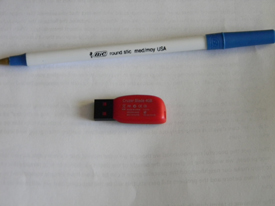
There was one other interesting moment in the last couple of days. Last week I took a flash drive down to Staples and had them print out the entire manuscript on premium copy paper, and then fasten it together with a ring binder. This was so we could give the book one last proof read, check for photo resolution, formatting, etc. (there’s a lot of stress involved when you’re about to spend thousands of dollars to print a book no one has even read yet.) But the funny moment came just before leaving for Staples when I put the flash drive on the kitchen table and made the comment “So there it is, my entire life’s work for the last two years reduced to one, microscopic flash drive, barely the size of a walnut.” It seemed so strange and surreal.
Anyway, just a few more details and I will be done with all the “tasks” required to get this long awaited book out into the world. I really am getting close, but it still seems like I will never finish. Well that’s it for now; got to get back to those tasks …I’ll keep you posted!

